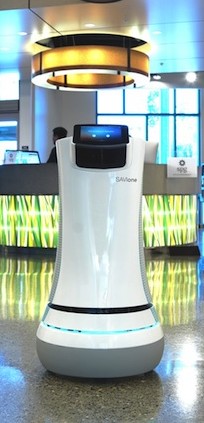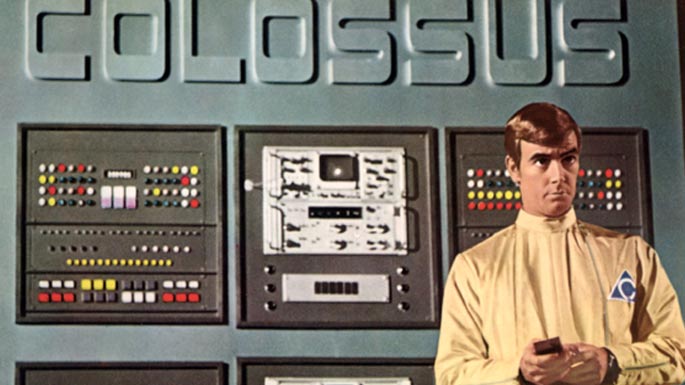Weak AI is going to roll in quietly, just a little hum to hypnotize us while the jobs disappear. The dream of the human-free labor force, a long-held one, is finally making strides. The robot butler is here, and you’ve been served. Grab what you can on the way out.
From “Bring on the Boring Robots,” Erik Sofge’s Popular Science piece about the mundane nature of the new machines, their gaze as blank and pitiless as the sun:
Compared to the usual subjects of robotics coverage—assassin drones, driverless cars, Amazon’s still-completely-hopeless delivery bot program—there’s nothing particularly titillating about an autonomous courier rolling quietly through hotel corridors, looking more like a small, mobile ATM than the “butler bot” that it’s sometimes described as. Is it interesting that it can weave through foot traffic without, as many other self-navigating bots do, grinding to a halt until the area is completely clear of humans? Is it cool that it can share an elevator with people, accomplishing the not-insignificant task of navigating in extremely close-quarters without bumping into or obstructing guests? Yes and yes, but only for people with an outsize interest in the nuts and bolts of robotics.
For everyone else, what’s interesting about SaviOne—and the upcoming Relay—is that they’re exactly as boring as robots should be, if they’re going to effectively populate the greater human world. Courier bots already ferry items around hospitals, though with less agility and understated charm as Savioke’s machines (SaviOne’s only on-screen facial feature is a pair of blinking eyes). The future of ubiquitous robotics isn’t in hyper-capable androids, but in specialized, good-enough systems that scurry about their narrowly-defined jobs.
Which isn’t to say that [Savioke CEO Steve] Cousins is thinking small. Hotels are obviously a huge market, and other environments could benefit from outsourcing the point-to-point delivery of small items to a mobile machine. Savioke is looking at nursing homes and offices, and banks have already expressed interest in Relay. Years from now, when fantasies of dishwasher-loading automatons are still fully out of reach, and self-driving cars are still relegated to HOV-style lanes in sunny California, we’ll have long since learned to ignore the swarms of hard-working, single-minded robots buzzing around underfoot. Boring is a matter of perspective.•


